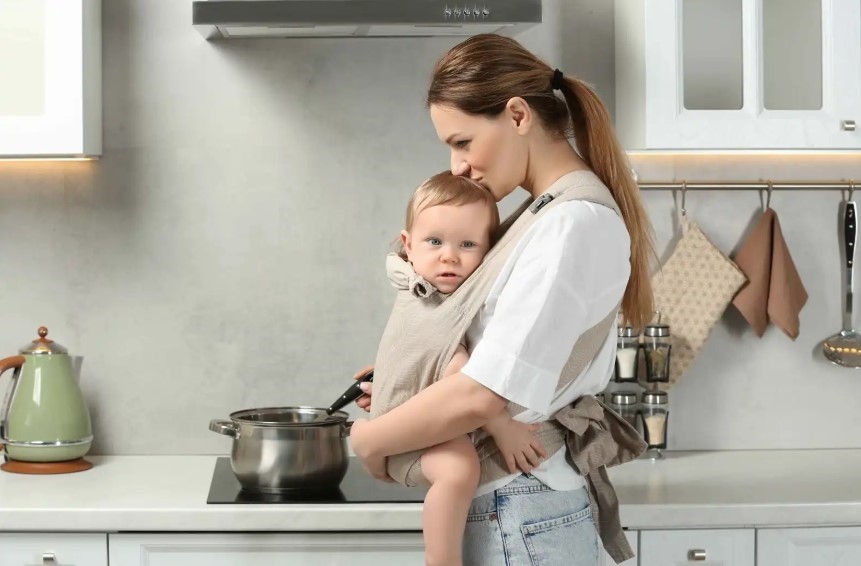With the pressures of daily life, household responsibilities, and busy schedules, many parents are looking for innovative solutions to make their routines easier.
اضافة اعلان
One of the latest trends is shoulder bags for infants, marketed as modern and stylish baby carriers that offer parents comfort and freedom of movement while on the go.
But the key question remains: Is it safe to carry an infant in a shoulder bag? Do these carriers provide adequate support for the baby's back and neck, while ensuring the safety of their spine and joints?
Why do parents turn to shoulder bags?
The new generation of parents often prefers practical, quick solutions that allow them to carry their baby while keeping their hands free. Among these options are shoulder-style infant bags, which resemble oversized handbags and have gained popularity through advertising and social media.
Despite their trendy look, doctors warn of potential health risks when these bags are used improperly. Medical professionals recommend using clinically tested baby carriers to ensure the safety of both mother and child.

Safer alternatives include:
Ergonomic carriers that evenly distribute the baby’s weight across the shoulders and hips, maintaining the natural alignment of the spine.
Proper hip support, where the baby’s knees are higher than their hips in an “M” shape, promoting healthy hip development.
Adjustable straps to accommodate the baby's growth and weight changes.
While shoulder bags may seem like a stylish and convenient option, they are not the safest choice. For both the baby's comfort and the mother's health, it's essential to choose carriers that offer balanced weight distribution and skeletal support.
Risks of carrying babies in shoulder bags
Dr. Rashmi Dharaskar, consultant in obstetrics and gynecology at Surya Mother Hospital in India, told OnlyMyHealth that carrying a baby in a shoulder bag can affect both the mother's and the infant’s health. Incorrect positioning may lead to spine and joint problems and can interfere with the baby’s development.
Risks for the mother:
After childbirth, a mother’s body is still in recovery. Core muscles are weak, and joints are more relaxed. Carrying a baby on one shoulder creates uneven strain, concentrating the weight on one side of the body. This can cause the body to tilt, leading to shoulder, neck, and lower back pain.
Spinal misalignment:
Studies cited by Dr. Dharaskar show that carrying a baby weighing around 5 kg on one shoulder for extended periods can alter shoulder blade movement and affect posture. This can lead to chronic pain in the neck or back, numbness in the arms or fingers, and early joint wear with prolonged use.
Risks for the baby:
An infant’s body is in a critical developmental stage, and proper carrying posture is essential for healthy bone and muscle growth. The International Hip Dysplasia Institute has warned against carriers that support the baby only at the pelvis, as this increases the risk of developmental hip dysplasia.
The baby’s spine should be naturally curved, not overly compressed or stretched. Improperly designed carriers may cause the baby’s body to slouch or sag.
Incorrect positions—such as the baby’s chin resting on their chest or a tight, confined bag—can also restrict airflow, potentially leading to suffocation.
Safer alternatives to shoulder bags:
To ensure both safety and comfort, experts recommend:
Ergonomic soft-structured carriers with wide, padded straps
Wraps and slings that distribute weight across the back and hips
Adjustable carriers that adapt to the baby's age and size
Choosing products approved by pediatric or orthopedic associations
While convenience is important, the safety and long-term health of the child should always come first.



